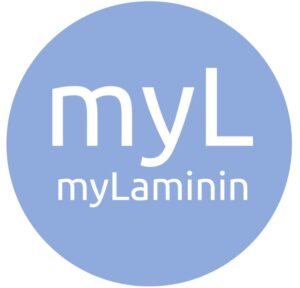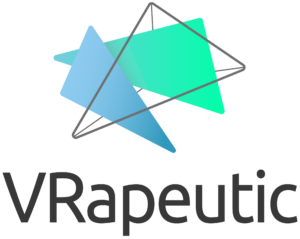Building a startup is challenging. You need to balance cash flow control, product development, go-to-market strategies, talent, branding and working in perpetual ‘go’ mode. And then there is the back-end work—the part that you don’t look forward to—financial records, information management systems, documents, policies and procedures, and, of course, contracts. Although a good contract doesn’t feel quite as rewarding as building your product or closing a deal, it’s an essential building block for a successful startup.
The best contracts are always ones that are drafted with your product, business model and consumer base in mind. Early-stage startups can be tempted to use online templates, but templates can leave you vulnerable. Most templates favour one side or are drafted ambiguously in a way that leaves interpretation up for debate.
We thought we would break down a few key contract non-negotiables to always keep in mind.
Your service offering and crown jewels
- Services: The agreement should clearly describe the services that will be provided and what is included or excluded as part of the project scope. For example, will your service include software licenses, hardware, software, professional services, training, installation/integration, or maintenance and support? The agreement should be clear about allocating responsibilities, development milestones, and milestone deadlines.
- Intellectual property: Your intellectual property (IP) is your most valuable asset. Investors will closely scrutinize your IP clauses to confirm that you actually own your IP. Here’s what to look out for:
-
- Effective license rights if you are licensing your IP to customers via service agreements or if you require the customer’s data to deliver the services.
-
- Ensure your IP clauses in employment agreements and independent contractor agreements are clear about ownership. In Canada, the default for IP ownership developed by an employee is ownership by the company unless the contract says otherwise— however, the opposite is true for contractors and consultants.
Managing data
- Confidential information: The definition of confidential information typically covers any information disclosed by or on behalf of a party to the other party that is marked as confidential or that reasonably should be understood to be confidential. Confidentiality terms are crucial to ensure that the person you are negotiating with won’t steal your secrets.
- Customer data: If you are dealing with customer data as a part of your service, be prepared to answer questions on privacy and security. Customers will likely want to know the security requirements you have in place to protect their data. If you will be collecting, accessing, using, or disclosing personal information, consult a privacy expert to ensure that you’re compliant with appropriate privacy laws. Certain jurisdictions, such as the EU, UK, Switzerland and California, have specific requirements that companies must follow if they deal with individuals in those jurisdictions.
Mitigating risk exposure
- Disclaimers: Disclaimers notify your users that you will not be held responsible for certain damages from their use of your website, products, or services. They need to be carefully structured to have legal effect. One that is too broad may be struck down by a court as ineffective. Well-crafted disclaimers go a long way in protecting a business from liability.
- Indemnification: Put simply, an indemnification clause requires one party to compensate the other for putting that party in harm’s way. For example, if you are a software developer, your customer may ask you to indemnify them if they receive a copyright infringement claim for using your software. You would be asked to “step in the shoes” of the customer and manage the dispute. If you agree to offer an indemnity, you should limit the categories of claims that you are willing to indemnify for, put caps on the damages and consider purchasing insurance as a way to limit your financial risk and exposure.
- Limitation of liability: Limitation of liability clauses allow parties to limit the amounts owed by one party to the other in the face of a claim. The type of damages due or claims brought can be limited. This allows a party to avoid a “bet the business” situation by allocating risk between the parties. There are typically three parts to a limitation of liability clause to look out for:
-
- Waiver of Indirect Damages: This clause states that a party will not be liable for any indirect damages that arise under the agreement, including any damages for lost revenue, lost savings, or lost profits.
- Cap on Direct Damages: Agreements typically limit the maximum amount of damages that can be claimed as direct damages. This amount is typically tied to the fees paid under the agreement.
- Exclusions: The parties may agree to exclude certain types of damages from the above circumstances. If these types of claims occur, whether directly or indirectly, the party will be exposed to unlimited liability. Parties will typically negotiate excluding claims for gross negligence, willful misconduct or fraud.
- Governing law & forum: The agreement should state what substantive law governs the rights and obligations of the parties and which country’s courts will hear disputes. You should consider the most practical and convenient jurisdiction if a dispute arises. If you choose a jurisdiction that is not your home court, make sure you are comfortable with their procedural system and how difficult it may be to enforce a foreign judgment domestically.
How you do business
- Subcontracting: A contract is between two parties, and typically the rights and obligations under the contract cannot be imposed on a third party. However, third parties can sometimes be brought under a contract. For example, a subcontracting clause can be used to allow a party to assign or outsource parts or all of the obligations under a contract to a third party. You may need to rely on this clause if you have a third party hosting provider or even independent contractors working for you. Take note of language that requires you to obtain the customer’s consent before subcontracting (or to notify the customer in advance).
- Non-solicitation: As an early-stage company, almost all of your employees directly impact the bottom line. Non-solicit clauses protect your employees from being poached by a customer. The clause should define the timeframe, be limited to employees related to the services being provided under the agreement, and exclude situations where an employee responds to a general recruitment advertisement.
- Assignment: An assignment clause governs whether and when a party can transfer the contract to a third party. While agreements typically limit the ability of a party to transfer the contract without some form of prior consent, startups should ensure there is language that permits it to assign the agreement to a purchaser of its assets or shares without consent.
Many startups offer game-changing products and services to solve inefficiencies in the market, but overcoming the growing pains of launching a startup isn’t easy. A well-thought-out risk management tool often makes the difference between a successful startup and a struggling one. Good contracts are part of your risk management toolbox. A great technology contracting lawyer should be able to leverage sector knowledge and their own experience to advise you on which terms are negotiable and what is market in the industry.
Are you a startup founder with contract questions for Torys? Reach out to Wendes Keung today to get your questions answered.













